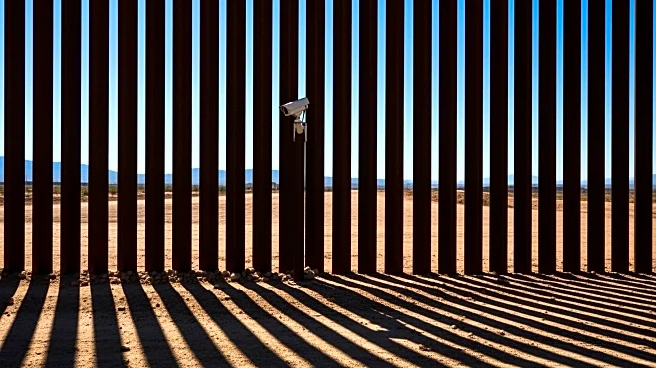What's Happening?
The Trump administration has implemented a series of restrictive immigration measures, resulting in an 83% increase in migrant apprehensions at the U.S.-Mexico border from July to September 2025. These measures include expanded deportations, tightened
asylum rules, and increased use of expedited removal. Despite these efforts, apprehensions have risen sharply, indicating that migrants continue to attempt crossings despite the crackdown. The Department of Homeland Security (DHS) data shows that unlawful crossings have fallen to their lowest levels in over 50 years, yet the recent spike in apprehensions suggests ongoing challenges in deterring irregular migration.
Why It's Important?
The increase in apprehensions highlights the complexities of immigration enforcement and the challenges faced by the Trump administration in achieving its goal of securing the southern border. While the administration's policies aim to reduce unauthorized crossings, the rise in apprehensions suggests that these measures may not be as effective as intended. This situation impacts U.S. immigration policy, border security, and the lives of migrants seeking entry into the country. The administration's approach has sparked debate over the balance between security and humanitarian considerations, with implications for future policy decisions.
What's Next?
The Trump administration is expected to continue its strict immigration policies, potentially leading to further changes in enforcement strategies. Stakeholders, including political leaders and advocacy groups, may respond with calls for policy adjustments or increased support for affected migrants. The administration's actions could influence upcoming legislative discussions on immigration reform and border security funding. Monitoring the impact of these policies on migration patterns and border security will be crucial in assessing their long-term effectiveness.
Beyond the Headlines
The ethical and humanitarian dimensions of the administration's immigration policies are significant, as they affect the lives of migrants and their families. The crackdown raises questions about the treatment of asylum seekers and the balance between national security and human rights. Long-term shifts in U.S. immigration policy could result from ongoing debates and public opinion on these issues.















